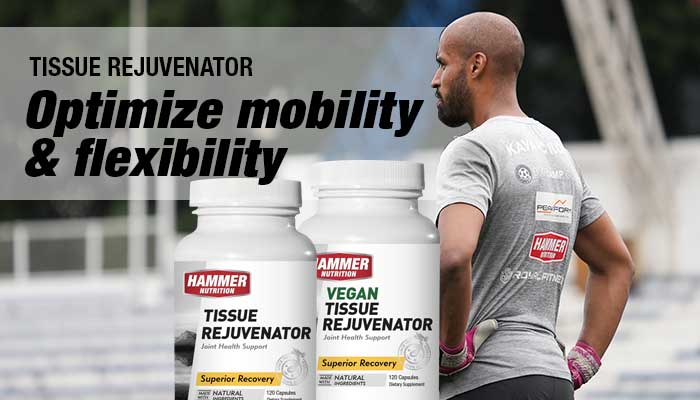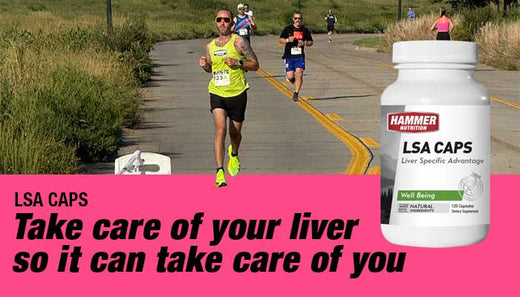
BY DR. BAYNE FRENCH
Sugar Refresher:
Lots of things are called "sugar". In my fighting days, they called me Sugar French. Later, I learned it was because people loved to fight me, but that’s not important.
Although my fighting record was not what I had hoped, it’s important to know that true sugar is sucrose. Sucrose is composed of a molecule of glucose bound to a molecule of fructose. After sugar ingestion (which hopefully occurs rarely), the enzyme protein sucrase cuts it in half. Glucose and fructose are then absorbed into the bloodstream.
Fructose occurs naturally in fruit, agave, honey, and some vegetables. Unprocessed fructose-containing foods have relatively low amounts; The fiber and phytonutrients within them cause the fructose to be absorbed into the blood slowly, which is favorable metabolically.
High fructose corn syrup (HFCS) is NOT naturally occurring. It is highly unfavorable. It is over 50% fructose and as high as 65%. It was developed in 1957 at Oklahoma State University. HFCS made it into our food in the 1970's. In 1984, both health-food companies Coca-Cola and Pepsi changed from sucrose to HFCS. I have endurance athletes in my practice who regularly drink these beverages. They have a gut, acne, bloat, fatty livers, and pre-diabetes.
HFCS is so biologically active and metabolism perturbing that finding evidence of Fatty Liver Disease in regular soda drinkers is almost predictable, including in endurance athletes.
The glucose piece of sugar elevates blood sugar, spiking insulin and driving the formation of fat. Over time, insulin elevation leads to insulin resistance and eventual Type 2 diabetes.
So, sugar (sucrose) has two weapons: glucose and fructose. Like me in my fighting days…run away and play dead.
Let Me Impress You With Other Big Words:
1) If I were a high-level endurance athlete, who I am, I would want to have heaps of nitric oxide (NO) in my body. NO does many favorable things and is generated in numerous tissues, including the heart, liver, and the inside lining of blood vessels.
Like most things human, the biochemistry of NO is vastly complicated. What is well understood is that it increases blood flow to tissues (vasodilates). It also facilitates the entry of glucose into muscle cells.
If I were going to run really far and fast or pack a 700-pound elk out of the mountains in pieces, I would like to have more blood getting to my muscles and more glucose entering those muscle cells. Wouldn't you?
You know where I'm going with this: sugar interferes with the formation of NO. As I said in my recent article on Uric Acid: "Why in the hell would you want to consume sugar with any regularity or EVER fuel with it?"
2) Many ultra-high level, Olympic caliber, freaky-good, scary strong, savage monsters like me know that your performance depends on your kidneys. Yep, those beans in each flank determine fluid and electrolyte balance. They are trained, just like your muscles and mind. Sugar, primarily through its fructose half, drives the formation of Antidiuretic hormone (ADH). ADH is a fascinating hormone (like all things human) made in the brain, then stored and released by the pituitary gland.
ADH is important for athletes. As its name implies, it interferes with diuresis (taking a leak). We thus hang onto the water, which is important in the setting of dehydration. ADH levels are usually elevated with heavy exertion, and hey, let's face it, nobody wants to stop and pee during a race, which is why I loved Obstacle Course Racing. You're already wet and muddy, which makes something else convenient.
Excessive ADH is a performance inhibitor causing excess fluid accumulation, which distorts one's "power-to-weight ratio." The more weight you pack around, the worse your power. ADH, unfortunately for athletic performance, also causes vasoconstriction. Recall that nitrous oxide is a vasodilator, enhancing blood flow to muscle. ADH reduces blood flow to muscle.
You know where I'm going with this: sugar drives the formation of ADH. Sugar directly causes more fluid accumulation and less blood flow to your muscles. Companies that promote sugar as an outstanding endurance fuel are either duplicitous or ignorant. And ignorance in a field in which you profess expertise is idiocy.
3) People always say, "I want to lose weight." Nope. What you want to do is burn fat. That’s more specific, right? "I want to run (bike, swim, etc.) faster ." Nope. What you want is to have your muscle cycle faster and longer without fatiguing. This is not semantics.
Meet Adenosine triphosphate, ATP. The chemical energy in this compound is converted to mechanical energy during muscle cell cycling. ATP is the absolute basic energy currency of our body. Its generation and subsequent utilization are paramount to optimal athletic performance. The mitochondria inside our cells make this compound.
You know where I'm going with this: below is an excerpt from my recent Uric Acid article,
"When we consume sugar, the enzyme fructokinase metabolizes the fructose piece. This process uses ATP. Douard et al (J of Phys. Jan 2013) showed that a cellular fructose load, as provided by sugar-sweetened beverages, causes ATP to reduce by 40-50%. Sugar impairs performance by depleting our primary energy currency. The notion that sugar is a good fuel source for endurance pursuits is deeply physiologically and biochemically flawed, and in essence, science shows the opposite is true."
Summary:
Outlined above are fundamental, biochemical reasons why sugar is antithetical to optimal athletic performance. It's antithetic to daily, non-athletic performance.
Sugar as a foundational business model compound needs to die off, and the sugar-producing/promoting companies and their philosophies should go away… it's as simple as that.
To enact a durable and real change, it must occur on an individual level. Meaning YOU do things differently. Educate yourselves, align with what makes sense to you, associate with whom you feel is operating in an authentic way, then go kick ass.










25 comments
I appreciate the informative reminder. In addition to curbing sugar, I am reducing my eating times. That is, I don’t eat from about 8:00 p.m. until 10:00 a.m..
Thanks again.
Preach! This message needs to be sung loud and often. The effects of the negative campaign against fat consumption from 70 years ago has lasting effects today-although it’s nearing it’s death. We need to continue to put the sugar is a good fuel trend in the ground as well.
Thank you Dr. French. Keep fighting the good fight!
I am in. I will work to restrict/eliminate sugar from my diet. What products/supplements will help me burn fat? I train every day and it’s frustrating I can’t burn down fat.
———
Hammer Nutrition replied:
Greatly reducing the sugar in your diet will go a long way in helping you achieve your ideal weight goals. Additionally, I suggest that you do not follow a restrictive diet, one that deprives your body of the fuel/food it needs to perform well in your workouts and to maximize recovery. Instead of doing that, let the work you do in your training sessions (i.e., the calories they’re burning) BE your diet. Whey protein isolate, which is found in our Whey Protein (https://hammernutrition.com/collections/fuels/products/whey-protein), is very beneficial in assisting with weight loss. The article at https://hammernutrition.com/blogs/endurance-news-weekly/why-whey-helps-with-weight-loss discusses this in more detail. Additionally, the article at https://hammernutrition.com/blogs/endurance-news-weekly/weight-loss-with-whey-protein discusses this even further, while also providing information about our two weight-loss support products, Phytolean (https://hammernutrition.com/collections/supplements/products/phytolean) and ChitoLean (https://hammernutrition.com/collections/well-being/products/chitolean). Later on in that article we list some helpful tips to assist in weight loss. Take a close look at #3 on that list: Include healthy fats in your diet. When you deprive your body of fat, it holds on to its fat stores more voraciously. Eating healthy fats (fish, avocados, seeds, and nuts)—and using EndurOmega (https://hammernutrition.com/collections/supplements/products/enduromega) daily—is good for your heart, satisfies your hunger, and helps your body release and burn its fat stores more liberally and efficiently.
wow, thanks!
I noticed that in the second opening paragraph the enzyme responsible for metabolizing sucrose to glucose and fructose is identified as sucrose. In all likelihood, the misidentification of this enzyme is a typo and was intended to be written sucrase. Is this an example of AI leading us into the ditch?
———
Hammer Nutrition replied:
Good catch, John! You are indeed correct that this was/is a typo. It is the enzyme sucrase (with an “a”), an α-glucosidase in the human small intestine, that hydrolyzes sucrose (with an “o”) to its component monosaccharides fructose and glucose. No AI involved at all, just a simple typo.